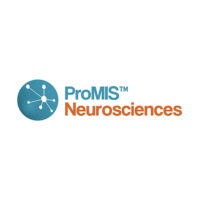
ProMIS Neurosciences (TSX:PMN) has initiated a program to identify novel therapeutic targets on neurotoxic strains of the protein TDP43, which is implicated in the development of amyotrophic lateral sclerosis (ALS) and frontotemporal dementia (FTD).
“ProMIS will apply its proprietary computational algorithms, supplemented by other methods pioneered by ProMIS scientists, to identify specific therapeutic targets on misfolded TDP43,” SCO, Dr. Neil Cashman, said in a statement.
“Our goal is to specifically target misfolded TDP43 without disrupting the critical role that normally-folded TDP43 plays in cell biology,” he added. “ProMIS plans to validate the monoclonal antibodies we develop against misfolded TDP43 in diseased human tissue, and then select the ideal candidates to progress to drug development.”
TDP43 is present in every cell, and in addition to participating in the expression and processing of genetic material, TDP43 plays a critical role in the response of cells to oxidative stress.
In ALS, FTD and other neurodegenerative diseases, TDP43 can lose its normal function, forming intracellular aggregates of misfolded TDP43 that disrupt cellular energy generation and normal aging-related protein degradation.






